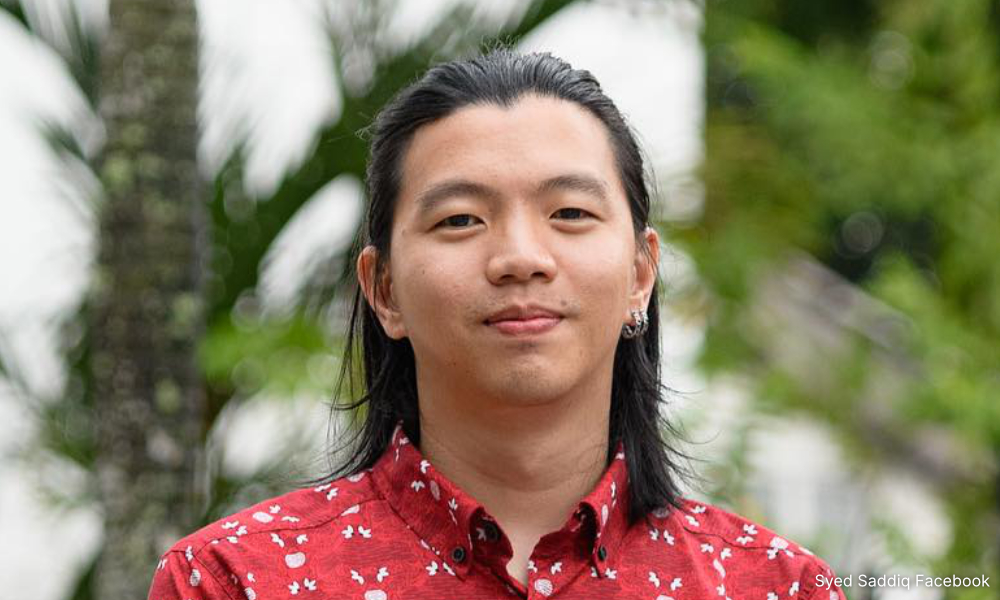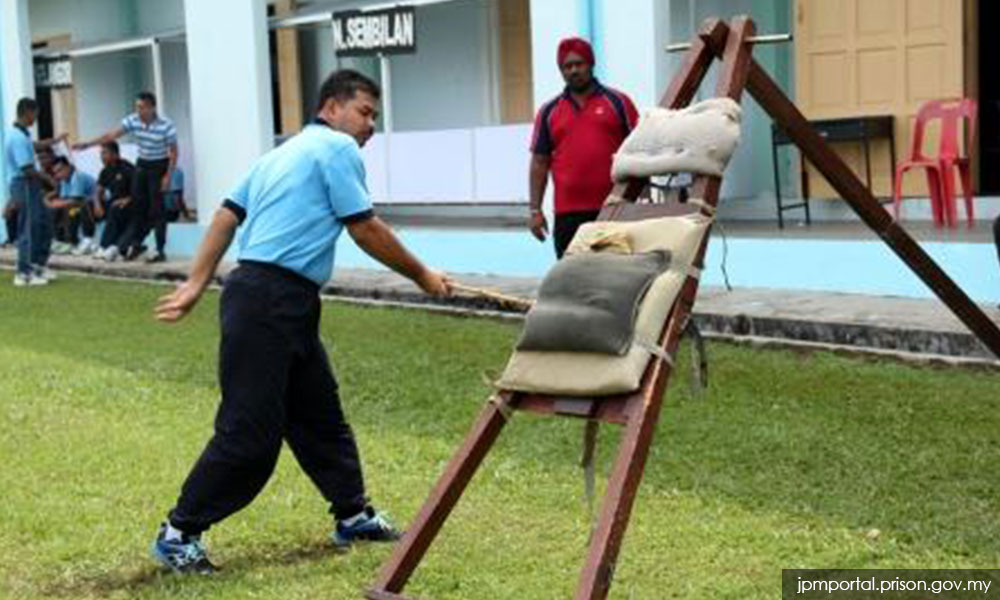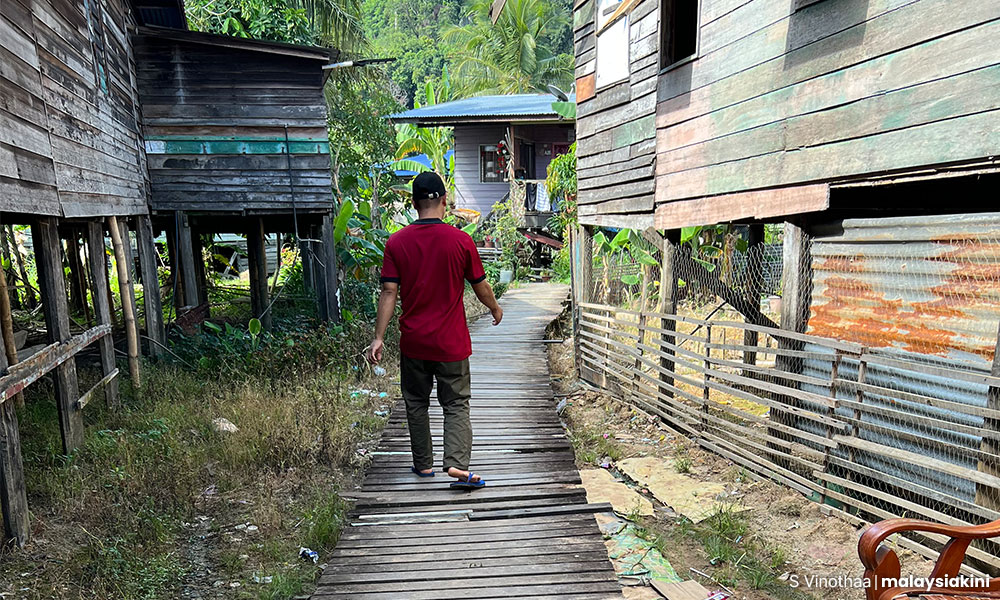Media Statement – 13/10/2024
Pending Abolition of Whipping in Malaysia, Whipping Sentences should be carried out the ISLAMIC WAY, as done in the Syariah Administration of Criminal Justice in Malaysia, or better still a Moratorium
Even Saudi Arabia abolished flogging/whipping in 2020, when will Malaysia?
MADPET (Malaysians Against Death Penalty and Torture) call on Malaysia to ensure that whipping (or caning) of prisoners in the administration of criminal justice be done in accordance with the manner and standards practiced by Islamic Syariah Criminal Procedure, which is more humane and less likely to cause grievous bodily harm, permanent damage or death.
In Malaysia, the punishment of whipping or caning are provided for as sentences of criminal offences, and also as punishment for Syariah criminal offences, but there are significant differences in the manner the sentence is carried, whereby the Syariah method is so much more less cruel, and less likely to cause serious injury or death.
Man Dies After Being Whipped
A man died after being caned(whipped) 12 times in Malaysia forces us to relook at the criminal punishment of whipping. His death sentence, after the abolition of the mandatory death penalty in Malaysia, was revised by the Federal Court on 10/9/2024 to 33 years in prison, along with 12 strokes of the cane. He died about a month after the caning/whipping.
‘Zaidi’s death certificate, also sighted by Malaysiakini, listed the cause of death as “septic sequelae to blunt force trauma to the gluteal region.” A butt bruise, or gluteal contusion, is an injury to the gluteal muscles of the buttocks caused by damage to muscle fibers and blood vessels, resulting in bleeding under the skin.(Malaysiakini, 9/10/2024)
Syariah criminal Whipping more humane and less likely to kill
Section 125(e) of Syariah Criminal Procedure (Terengganu) Enactment 2001 states that ‘(e) the person shall use the whipping rod with average force without lifting his hand over his head so that the offender's skin is not cut; …’ A similar provision also found in Selangor enactment, and most likely all States.
However, in the Malaysian Criminal Code, there is no such requirement, and he is caned with full force on his naked butt region with a rattan half an inch (1.27 cm) in diameter, and so whipped offender’s skin can and do break even after the first stroke of the cane. Now, it also known that this kind of whipping can kill.
“After being caned, I immediately felt drained of all my energy. The cane tore the skin on my buttocks and I started to bleed after a few minutes. “I could not sit for the next 10 days and I slept facing down to avoid making my wounds worse,” Sabri recalled. .(Malaysiakini, 9/10/2024)
In Syariah whipping, in comparison, the law says that the whipping rod ‘make either from rattan or small branch of a tree without segment or joint and its length not more than 1.22 meters and its thickness not more than 1.25 centimeters.’
In Syariah Whipping – no stripping and exposed buttocks
In the Syariah enactment, when being whipped, the convict is NOT asked to strip or expose his naked buttocks. The Syariah enactment, both in Terengganu and Selangor, says ‘(h) the offender shall wear clothes according to Hukum Syarak; …’
Sabri Umar, a documented migrant worker who was wrongly whipped 5 times, when there was an appeal pending in court shared his experience of being whipped.
‘… Sabri Umar said all the inmates were asked to strip with only a piece of cloth to cover their private parts. “We took turns to step onto a wooden frame and our legs were spread apart but not bound. Our hands were spread upward and tied to the frame we were standing on. “They untied us after the caning and told us to put on our shirts back while we waited in a group and watched others being caned,” described the 31-year-old, his voice quavered as if he was reliving the horror again. (Malaysiakini,
Whipping in Malaysia happens a lot
So many people are being made to suffer this cruel, inhumane and life-threatening punishment of whipping in Malaysia annually. “According to Prisons Department records, 47,914 foreigners were found to have violated the Immigration Act from 2002 to 2008. Of these, 34,923 were caned or whipped. In 2010, Amnesty International released a report saying some 10,000 prisoners and 6,000 refugees were being caned each year in Malaysia, punishment for more than 60 crimes - including drug-related and sexual offences, as well as migration violations. We do not have the current statistics, but 5,000 or more are still being whipped annually.
Note, that when those facing mandatory death penalty had their death sentenced revised to imprisonment, the law now says that they also will receive mandatorily at least 12 whipping/caning. Parliament should amend this law, and allow the courts to determine whether they should be whipped or not, and how many times. Now, Parliament has removed judicial discretion – and judges are forced by law to impose sentence of at least 12 strokes of the cane(whipping).
Malaysia, the last few that Retains Whipping As A Criminal Sentence
Only about 15 countries, retain whipping as a punishment for crimes, and embarrassingly, Malaysia is one of them.
Many countries have long abolished whipping as a punishment from their statutes, such as India and the United Kingdom, pursuant to the Indian Abolition of Whipping Act 1955 and the Criminal Justice Act 1948, respectively.
On April 2020, it was reported that Saudi Arabia also have abolished flogging as a form of punishment. It was part of reforms pushed by King Salman Bin Abdul Aziz and his son, the kingdom’s de facto ruler, Crown Prince Mohammed bin Salman (MBS) (Al Jazeera, 25/4/2020)
Therefore, MADPET calls on Malaysia to abolish the punishment of whipping in Malaysia especially the kind of whipping in the administration of criminal justice, where now we have a report that a person died because of it. How many persons have death was caused by whippings in Malaysia?
After, the reported death caused by whipping, it was most disappointing that Prime Minister Anwar Ibrahim and the current government of Malaysia failed to immediately place a MORATORIUM on all whippings.
Pending abolition, MADPET proposes, if Malaysia still wants to retain and carry out this cruel punishment of whipping, to at the very least to ensure that any or all whippings is carried out the Islamic way, that is certainly more humane and less likely of killing anyone, or causing serious injury.
Charles Hector
For and on behalf of MADPET
Statement thus far have been carried in the following media
“The irony of a Malaysian prisoner who escapes the hangman’s noose dies from 12 strokes of whipping” - Focus Malaysia, 13/10/2024
Whipping must follow Islamic way if not yet abolished: rights group responds to inmate’s death - Scoop, 13/10/2023
Notes:-
CRIMINAL PROCEDURE CODE (REVISED 1999)
288 Mode of executing such sentence
(1) When the accused is sentenced to whipping the number of strokes shall be specified in the sentence. In no case shall the whipping exceed twenty-four strokes in the case of an adult or ten strokes in the case of a youthful offender, anything in any written law to the contrary notwithstanding.
(2) Whipping shall be inflicted on such part of the person as the Minister charged with responsibility for public order from time to time generally directs.
(3) The rattan used for whipping shall be not more than half an inch in diameter
(4) In the case of an accused sentenced to whipping for an offence under section 403, 404, 406, 407, 408, 409 or 420 of the Penal Code, or a youthful offender, whipping shall be inflicted in the way of school discipline with a light rattan.
(5) When a person is convicted at one trial of any two or more distinct offences any two or more of which are legally punishable by whipping, the combined sentences of whipping awarded by the Court for any such offences shall not, anything in any written law to the contrary notwithstanding, exceed a total number of twenty-four strokes in the case of adults and ten strokes in the case of youthful offenders.
SYARIAH CRIMINAL PROCEDURE (TERENGGANU) ENACTMENT 2001
125 Sentence of whipping
...(2) The whipping rod, excluding its holder, shall be of the same type and make either from rattan or small branch or a tree without segment or joint and its length not more than 1.22 metres and its thickness not more than 1.25 centimetres.
(3) The following provisions shall be followed when executing the sentences of whipping, that is-
(a) before execution of the sentence, the offender shall be examined by a Government Medical Officer to certify that the offender is in a fit state of health to undergo the sentence;
(b) if the offender is pregnant, the execution shall be postponed until the end of two months after delivery or miscarriage, as the case may be;
(c) the sentence shall be executed before a Government Medical Officer in such place as the Court may direct or in a place fixed by the Government for the purpose;
(d) the person appointed to execute the sentence shall be an 'adil and mature person;
(e) the person shall use the whipping rod with average force without lifting his hand over his head so that the offender's skin is not cut;
(f) after inflicting a stroke, he shall lift the rod upward and not pull it;
(g) whipping may be inflicted on all parts of the body except the face, head, stomach, chest or private parts
(h) the offender shall wear clothes according to Hukum Syarak;
(i) if the offender is a male the whipping shall be inflicted in a standing position, and if a female, in a sitting position;
(j) if during the execution of the whipping the Government Medical Officer certifies that the offender can no longer receive the strokes, the whipping shall be postponed until the Medical Officer certifies that the offender is fit to undergo the balance of the sentence.
(4) In the case where the offender is sentenced to whipping only, then he shall be dealt with as if he is sentenced to imprisonment until the sentence is executed.
(5) If the Government Medical Officer certifies that the offender, due to old age, illness or any other reason is unable to undergo the whipping sentence wholly or partly, the case shall be referred to the Court which may order the execution of the sentence in a manner as it thinks reasonable.
Explanation - Old age means the age of fifty years or above.

Suhakam has confirmed receiving a report regarding the death of an inmate, allegedly after the administration of a caning punishment.
When contacted, Suhakam confirmed that the report over the death of a man incarcerated at Pokok Sena Prison, Kedah, had been lodged yesterday.
According to the report sighted by Malaysiakini, the family of inmate Zaidi Abd Hamid, was informed of his death at 2am on Monday (Oct 7).
Zaidi, 49, was initially sentenced to death in 2015.
However, after the abolition of the mandatory death penalty in Malaysia, his sentence was revised on Sept 10 to 33 years in prison, along with 12 strokes of the cane.
Denial of visit
The report claimed that Zaidi began experiencing severe bleeding a week after the caning, which alarmed his family, especially given his pre-existing condition of high blood pressure.
“Zaidi’s wife requested to visit him on Oct 6 but was denied. His family was very worried about Zaidi’s condition and had asked the prison authorities to send him to the hospital for proper medical treatment.
“Unfortunately, on Oct 7 at around 9am, the family received the news about Zaidi passing on the same day,” the report stated.

Zaidi’s death certificate, also sighted by Malaysiakini, listed the cause of death as “septic sequelae to blunt force trauma to the gluteal region.”
He had reportedly passed away en route to Sultanah Bahiyah Hospital in Alor Setar.
Malaysiakini was also informed that Zaidi had been receiving medication for high blood pressure and diabetes while in prison.
When contacted, Dobby Chew, CEO of the Right to Life advocacy group Hayat, called for a thorough post-mortem and investigation to determine if Zaidi’s health conditions contributed to his death.
“However, this doesn’t change the fact that having these pre-existing conditions, he should have never been confronted with caning as it would always carry further risk of harm than what is legally permitted,” he said.
Danger of caning questioned
Chew further questioned the quality of healthcare resources within the prison system, suggesting that the delay in medical treatment following the whipping might have played a role in Zaidi’s death.
“He (Zaidi) was resentenced to life imprisonment and had a chance for redemption and a life outside of prison. He and his family were denied this.
“If the government cannot assure all persons who are subjected to caning will not suffer from further complications beyond the aim of inflicting pain, then this punishment should not be part of our Penal Code,” he lamented.

Chew also pointed out that in a different case, lawyers had earlier advocated for leniency in the case of a quadriplegic drug mule, seeking to waive caning due to pre-existing health issues, but their appeal was denied.
The Criminal Procedure Code allows for the waiver only if a medical officer certifies that the individual is unfit.
“Caning continues to be a contentious issue, especially with the Federal Court decision last week that caning must be meted out consecutively.
“This opens up the danger because someone who may be at risk of further health complications may be certified as ‘fit’ for caning,” he said.
Malaysiakini has contacted Pokok Sena Prison and is awaiting a response. - Malaysiakini, 9/10/2024
The Indonesian migrant worker who was wrongfully imprisoned and whipped said he was among 35 other Tawau Prison inmates who were whipped on the same day, one after another.
Recalling his harrowing experience waiting for his turn to be whipped, Sabri Umar said all the inmates were asked to strip with only a piece of cloth to cover their private parts.
“We took turns to step onto a wooden frame and our legs were spread apart but not bound. Our hands were spread upward and tied to the frame we were standing on.
“They untied us after the caning and told us to put on our shirts back while we waited in a group and watched others being caned,” described the 31-year-old, his voice quavered as if he was reliving the horror again.
Sabri said it was a terrifying moment being gathered in the same area and witnessing others before him being caned.
“Many of them screamed and cried, but those who were stronger didn’t cry. I remember one person receiving 10 strokes that day.
“After being caned, I immediately felt drained of all my energy. The cane tore the skin on my buttocks and I started to bleed after a few minutes.
“I could not sit for the next 10 days and I slept facing down to avoid making my wounds worse,” Sabri recalled.

Sabri’s woes
Over a period of just four months since April, the former employee of a plywood factory in Kalabakan in Tawau, Sabah, was wrongfully terminated of his employment, arrested and wrongfully detained by the Tawau police.
Sabri was investigated under Section 14(a) of the Sexual Offences Against Children Act 2017 but eventually charged and sentenced under Section 6(1) (c) of the Immigration Act 1959/63.
He claimed to be innocent of both charges, but the Sessions Court sentenced him to 11 months in jail and five strokes of the cane.
Four months after his arrest, Sabri was acquitted by the High Court in Tawau, but he lived in constant fear of a re-arrest under the sexual offence and of finding himself behind bars as swiftly as he was put there the first time.
Owing to the swift manner by which he was imprisoned and sentenced, Sabri agreed that there was a high possibility that there were other wrongfully imprisoned inmates in the Tawau Prison.
Sabri, who now has the support of the Indonesian Consulate in Tawau, was administered five strokes of the cane despite a pending notice of appeal and he told Malaysiakini that he would seek justice.
For two days after the whipping, Sabri was running a fever and he only took the yellow medicine handed to each inmate after the caning.
He alleged that they received no other medications and some inmates who also had fever were asked to just take a cold shower.
After his acquittal, he went to see a doctor and get himself checked as he was experiencing pain when urinating.
The consul at the Indonesia Consulate in Tawau, Heni Hamidah, told Malaysiakini that they sent Sabri for a second medical test on Monday to find out the extent of the complications resulting from the whipping.

‘Ratify UN Convention against torture’
Criminal lawyer Michelle Rossana Usman from Kota Kinabalu, who was engaged to represent the migrant worker by the Sabah Timber Industry Employees Union of which Sabri is a member, noted Malaysia’s notoriety for its flogging practices.
Quoting a statistic by Amnesty International, Michelle said the international human rights organisation estimates that as many as 10,000 people are subjected to caning in Malaysia every year, most of whom are foreign nationals.
"Sabri was unfortunately whipped for an offence that he could not have been guilty of as he had proper documentation to enter Malaysia as a migrant worker.
"It is high time Malaysia ratifies the UN Convention against Torture and Other Cruel, Inhuman or Degrading Treatment or Punishment.
"The government also needs to ratify the International Covenant on Civil and Political Rights," she stressed.
Michelle, who is a member of the Sabah Human Rights Centre, pointed out that Sabri's case was an example of a workers' union member who was wrongfully charged with crimes he was not guilty of.
"What about the thousand others who are charged in our courts but are not represented at all?" she asked.
Michelle urged the government to amend existing legislation to treat immigration violations as administrative offences, rather than crimes punishable with imprisonment and caning.

Judicial caning in Malaysia and Saudi Arabia
Judicial caning in Malaysia is meted out for more than 60 criminal offences such as drug trafficking, rape, illegal entry into Malaysia under the Immigration Act 1959/63 and making false passports under the passport Act 1966.
According to the Amnesty International Report 2020/21, the judicial caning sentence was also meted out to Rohingya refugees during the pandemic.
Following protests from local activists, the sentence was set aside for the 27 Rohingya refugees at a hearing in the High Court in Alor Setar in 2020. However, the migrants continued to be caned, in addition to their prison sentences for illegal entry into Malaysia.
The 27 refugees, who were among 40 refugees convicted by a Magistrate’s Court in Langkawi for entering Malaysia without a valid permit, had obtained legal representation to appeal.
The 40 were also sentenced to seven months in jail.
The High Court in Alor Setar decided that caning would be inhumane as the men were refugees with no prior history of criminal activity or violence.
Meanwhile, a country that was known to carry out flogging in public squares, Saudi Arabia, abolished that corporal punishment in April 2020.
Crown Prince Mohammed Salman has spared the rod and offenders will instead be fined or receive jail sentences. - Malaysiakini, 17/8/2022
Saudi Arabia abolishes flogging as punishment
Saudi Supreme Court says decision is part of reforms pushed by King Salman and his son Crown Prince Mohammed.

Saudi Arabia has abolished flogging as a form of punishment, the country’s supreme court has announced.
The court said on Saturday that the “human rights advances” are part of reforms pushed by King Salman Bin Abdul Aziz and his son, the kingdom’s de facto ruler, Crown Prince Mohammed bin Salman (MBS).
Court-ordered floggings in Saudi Arabia – sometimes extending to hundreds of lashes – have long drawn condemnation from human rights groups.
Human rights activists, however, say legal reforms overseen by MBS have brought no let-up in the conservative kingdom’s crushing of dissent, including through the use of the death penalty.
International human rights norms
The Saudi supreme court said the latest reform was intended to “bring the kingdom into line with international human rights norms against corporal punishment”.
Previously the courts could order the flogging of convicts found guilty of offences ranging from extramarital sex and breach of the peace to murder.
In future, judges will have to choose between fines and/or jail sentences, or non-custodial alternatives like community service, the court said in a statement seen by AFP on Saturday.
The most high-profile instance of flogging in recent years was the case of Saudi blogger Raif Badawi, who was arrested in 2012 and sentenced to seven years in prison and 600 lashes and then resentenced to 10 years and 1,000 lashes in 2014 for blogging about free speech and “insulting Islam”.
He was awarded the European Parliament’s Sakharov human rights prize the following year. Badawi is currently serving his jail term.
Saudi Arabia’s human rights record has come under scrutiny this week following news of the death in prison of human rights activist and lawyer Abdullah al-Hamid.
The 69-year-old was a founding member of the Saudi Civil and Political Rights Association, known by its Arabic acronym HASEM, and was sentenced to 11 years in jail in March 2013, campaigners said.
He was convicted on multiple charges, including “breaking allegiance” to the Saudi ruler, “inciting disorder” and seeking to disrupt state security, Amnesty International said.
Criticism of Saudi Arabia’s human rights record has grown since King Salman named his son Prince Mohammed as crown prince and heir to the throne in June 2017.
‘Disingenuous move’
Aliaa Abutayah, a London-based Saudi political activist and an opposition leader, told Al Jazeera the latest change by the Saudi government in its penal code is a “very small change”.
“If the Saudi government is serious about legal reform, they should start by releasing all of the political and human rights prisoners they have been holding in their prisons for years,” she said.
“The government should also abolish the death penalty, including the practice of executing juveniles,” she added.
The October 2018 murder of critic Jamal Khashoggi inside the Saudi
consulate in Istanbul and the increased repression of dissidents at home
have overshadowed the prince’s pledge to modernise the economy and
society.Al Jazeera, News Agencies, 25/4/2020





No comments:
Post a Comment